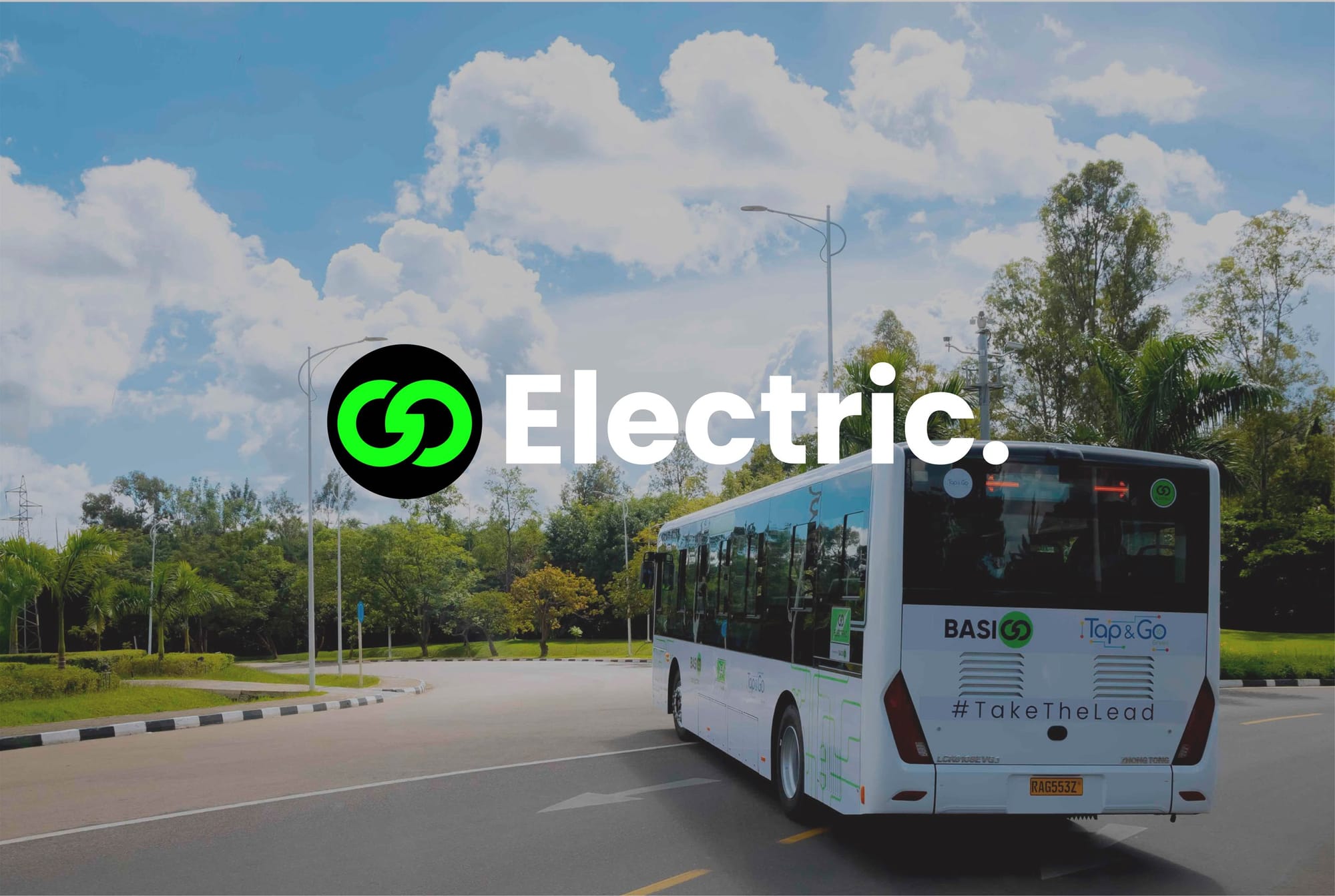BasiGo's Partners in Electrifying Kenya’s Public Transport Sector.
BasiGo, a pioneering electric vehicle company, has teamed up with several influential partners to accelerate the adoption of electric buses in Kenya.


BasiGo, a pioneering electric vehicle company, has teamed up with several influential partners to accelerate the adoption of electric buses in Kenya.
The company's mission is to introduce sustainable, zero-emission buses that can modernize Kenya’s transportation infrastructure while reducing environmental impact.
This ambitious project has drawn the support of various international and local partners in finance, technology, and logistics, which are crucial to overcoming challenges in deploying electric buses at scale.
Here’s a closer look at some of the key partnerships helping BasiGo achieve its vision of electrified public transport in Kenya.
1. KCB Bank Kenya – Financing Electric Bus Acquisition
In collaboration with KCB Bank, BasiGo has launched financing options for public service vehicle (PSV) operators to purchase electric buses.
KCB Bank provides flexible financing solutions that reduce the upfront cost of adopting electric buses, allowing operators to spread payments over time.
This partnership is a critical component of BasiGo’s battery-as-a-service (BaaS) model, enabling operators to adopt electric vehicles without the financial burden of battery ownership and maintenance.
The financing partnership with KCB Bank supports BasiGo’s goal of making electric buses accessible for small-scale PSV operators, which in turn enhances the affordability and scalability of electric buses in Kenya.
2. BYD (Build Your Dreams) – Supplying Electric Bus Technology
BasiGo collaborates with BYD, one of the world's largest electric vehicle manufacturers, for the design and technology of its electric buses.
BYD supplies the chassis and core components for BasiGo's electric buses, while BasiGo customizes them for the unique needs of Kenyan urban transit.
This partnership combines BYD’s experience in electric vehicle technology with BasiGo’s local expertise to deliver reliable and efficient buses tailored to the Kenyan market.
The BYD-BasiGo partnership is instrumental in ensuring that BasiGo buses are high-quality and adapted to withstand Kenya’s road and climate conditions.
Together, they are building a scalable electric bus model that aligns with local transportation needs and safety standards.
3. Kenya Power and Lighting Company (KPLC) – Developing Charging Infrastructure
Kenya Power has partnered with BasiGo to establish the necessary charging infrastructure for electric buses in Nairobi and other urban areas.
This collaboration focuses on developing a reliable and widespread network of charging stations, crucial for the efficient operation of electric buses.
Kenya Power is working with BasiGo to ensure that the power grid can support increased electricity demand while remaining sustainable and minimizing environmental impact.
Kenya Power's involvement includes constructing fast-charging stations in strategic locations across Nairobi, optimizing charging times, and ensuring that bus operators can seamlessly integrate electric buses into their routes.
4. Uber Kenya – Integrating Electric Buses into Ride-Hailing Platforms
Uber Kenya has shown interest in BasiGo’s electric buses as part of its efforts to reduce its carbon footprint and offer sustainable mobility options.
This potential partnership envisions electric buses as part of Uber’s larger platform, providing greener public transit alternatives for Nairobi’s urban population.
While Uber's role may initially focus on increasing visibility and access to electric buses, this collaboration has the potential to expand into a fully integrated solution where electric buses can serve the broader ride-hailing market in Kenya.
This initiative aligns with Uber’s global commitment to sustainability, aiming to reduce emissions across its operations and encourage the use of electric vehicles within its network.
5. National Transport and Safety Authority (NTSA) – Supporting Regulatory Compliance and Safety Standards
BasiGo has been actively engaging with Kenya’s National Transport and Safety Authority (NTSA) to ensure compliance with local regulations and safety standards for electric buses.
This partnership is essential to meet Kenya’s regulatory requirements, as NTSA helps define and enforce the standards for public service vehicles, including electric buses.
NTSA’s role ensures that BasiGo’s electric buses maintain high safety and operational standards, protecting passengers and supporting BasiGo's objective of offering reliable transportation.
By aligning with NTSA, BasiGo is able to streamline the approval and registration processes, ensuring that new electric buses can be deployed without delays and providing peace of mind for operators and passengers alike.
6. Nairobi City County Government – Advancing Urban Mobility Goals
BasiGo has collaborated with the Nairobi City County Government to support Nairobi’s broader urban mobility and environmental goals.
As part of this collaboration, the city provides incentives and logistical support to facilitate the transition to electric buses.
This partnership highlights Nairobi’s commitment to reducing urban congestion and pollution, which aligns with BasiGo’s sustainable transportation goals.
The support from the city government has been instrumental in clearing bureaucratic hurdles, securing strategic locations for charging stations, and promoting awareness about electric vehicles.
Nairobi’s commitment to BasiGo’s vision of a cleaner, more efficient public transport system reflects the city’s larger goal of positioning itself as a leader in sustainable urban development.
Challenges and Future Outlook
While these partnerships have propelled BasiGo forward, scaling electric public transportation across Kenya still faces challenges.
Building and maintaining charging infrastructure, ensuring the power grid’s resilience, and balancing operational costs remain critical areas for development.
However, the combined efforts of BasiGo and its partners continue to bring the vision of a sustainable transport system within reach.
BasiGo’s partnerships provide a strong foundation to expand the electric bus model not only within Kenya but across other African cities facing similar urban transportation challenges.
Through these strategic alliances, BasiGo is shaping a future where Kenya’s public transport system is both environmentally friendly and efficient.
As the company continues to grow and strengthen its partnerships, it has the potential to make an enduring impact on Africa's transportation landscape, setting a new standard for sustainable urban mobility in the region.




